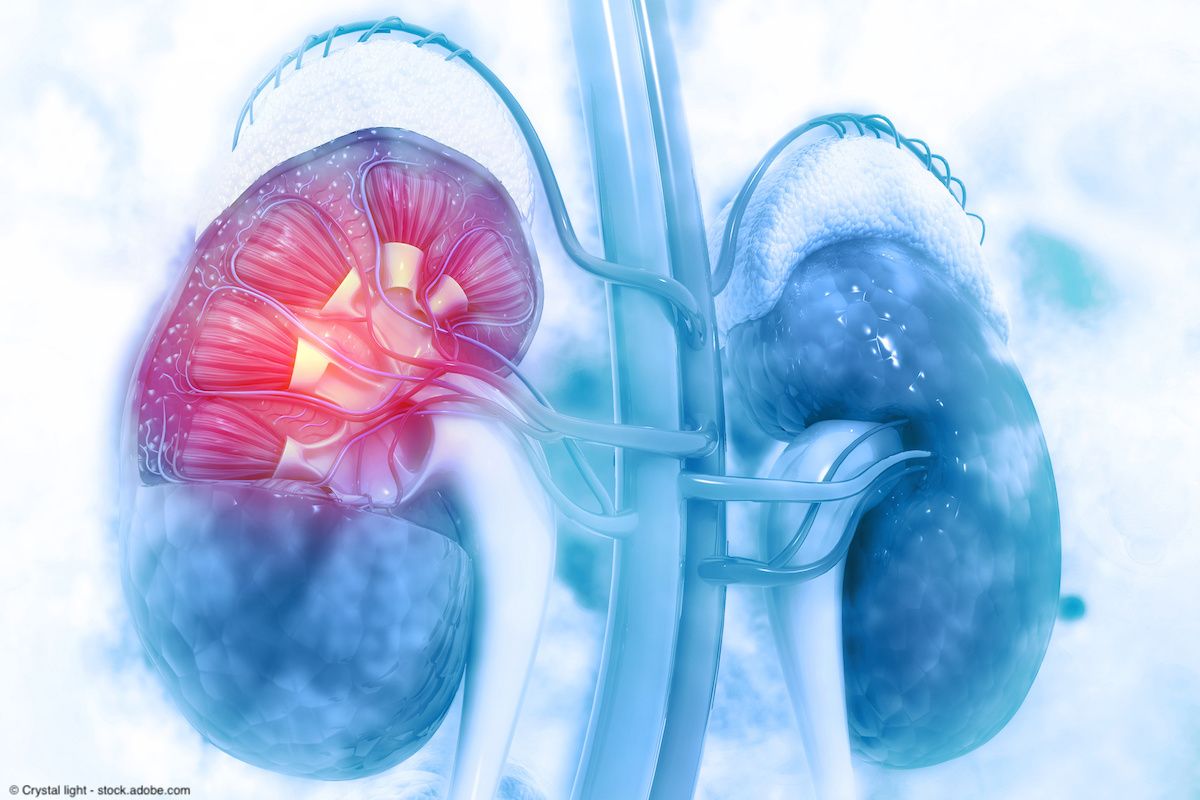Top 10 kidney cancer stories in 2023
As the year comes to a close, we revisit some of this year’s top content on kidney cancer.
There’s been an abundance of news surrounding kidney cancer advances over the last year. In honor of these breakthroughs, Urology Times® is highlighting our top content on renal cancer from 2023.

Pembrolizumab plus lenvatinib shows promise in nccRCC
Data from the phase 2 KEYNOTE-B61 trial (NCT04704219) showed that lenvatinib (Lenvima) plus pembrolizumab (Keytruda) elicited durable anti-tumor activity as a first-line treatment for patients with non–clear cell renal cell carcinoma. Overall, the objective response rate among all patients included for analysis was 49% (95% CI, 41%-57%). Read more on the findings here.
FDA grants Fast Track Designation to CAR T-cell therapy for kidney cancer
In August 2023, the FDA granted a Fast Track Designation to the chimeric antigen receptor (CAR) T-cell therapy IVS-3001 for the treatment of patients with renal cell carcinoma. The decision to award Fast Track status to IVS-3001 was based on data from an investigational new drug application submission seeking authorization for a first-in-human, single-arm, open-label, phase 1/2 trial (NCT05672459) of the CAR T-cell therapy in patients with previously treated, locally advanced, or metastatic solid tumors that are HLA-G–positive. Read more here.
Adjuvant pembrolizumab improves overall survival in certain patients with renal cell carcinoma
Data from the phase 3 KEYNOTE-564 trial showed that adjuvant pembrolizumab (Keytruda) improved overall survival compared with placebo in patients with renal cell carcinoma at intermediate-high or high risk of recurrence following nephrectomy, or following nephrectomy and resection of metastatic lesions. Read more on the findings here.
Dr. Stifelman on retroperineal partial nephrectomy for anterior vs posterior renal tumors
In an interview with Urology Times, Michael D. Stifelman, MD, shared findings from the study, “A Comparative Analysis of Robot-assisted Retroperitoneoscopic Partial nephrectomy (RARPN) for Anterior vs Posterior Renal tumors: A Propensity Score Matched Analysis in a Multi-Institutional Cohort,” which was presented at the 2023 American Urological Association Annual Meeting in Chicago, Illinois. Stifelman is the chair of urology and director of robotic surgery at Hackensack University Medical Center in New Jersey. Watch here.
Pembrolizumab plus axitinib shows extended benefit over sunitinib in renal cell carcinoma
Final prespecified long-term follow-up results from the phase 3 KEYNOTE-426 trial (NCT02853331) showed superior benefit with pembrolizumab (Keytruda) plus axitinib (Inlyta) over sunitinib (Sutent) and supported the combination as first-line standard of care for the treatment of patients with metastatic renal cell carcinoma. Data showed a 36-month overall survival rate of 63% in patients who received the combination vs 54% among patients who received sunitinib. Read more on the findings here.
Belzutifan significantly delays disease progression in phase 3 kidney cancer trial
Findings from the phase 3 LITESPARK-005 trial (NCT04195750) showed that treatment with the HIF-2α inhibitor belzutifan (Welireg) significantly reduced the risk of disease progression or death vs everolimus (Afinitor) in patients with advanced renal cell carcinoma (RCC) who progressed following treatment with a PD-1/L1 inhibitor and a VEGF-TKI. The study met its co-primary end point of progression-free survival and demonstrated a trend toward improved overall survival. Read more on the findings here.
Dr. Hutson presents follow-up CLEAR study data on lenvatinib/pembrolizumab in aRCC
In an interview at the 2023 ASCO Annual Meeting in Chicago, Illinois, Thomas E. Hutson, DO, PharmD, FACP, discussed the background and key findings of the CLEAR study (NCT02811861), exploring lenvatinib plus pembrolizumab vs sunitinib in patients with advanced renal cell carcinoma. Watch here.
Study identifies biomarkers predictive of response to immunotherapy in patients with kidney cancer
Investigators at the Johns Hopkins Kimmel Cancer Center in Baltimore, Maryland found that biomarkers derived from hematoxylin and eosin-stained (H&E) pathology slides were predictive of response to anti-PD-1 therapy in patients with metastatic clear cell renal cell carcinoma.
“The ability to use information from an H&E slide, pretreatment, to predict overall survival of patients receiving this therapy is extremely powerful and is something that can be used in resource-poor settings as well,” said study author Julie Stein Deutsch, MD. Read more on the findings here.
ZIRCON study of TLX250-CDx confirms imaging agent’s potential in renal cell carcinoma
Findings from the phase 3 ZIRCON study (NCT03849118) confirmed high specificity and sensitivity of the non-invasive TLX250‑CDx PET/CT imaging agent for detection of clear cell renal cell carcinoma in patients with indeterminate renal masses. Overall, TLX250‑CDx PET/CT demonstrated a sensitivity of 85.5% and a specificity of 87.0% in this patient population. Read more on the findings here.
Phase 3 data for cabozantinib triplet in kidney cancer published in NEJM
Findings from the phase 3 COSMIC-313 trial, which showed that adding cabozantinib (Cabometyx) to nivolumab (Opdivo) and ipilimumab (Yervoy) in the first-line setting significantly improved progression-free survival in patients with intermediate- or poor-risk renal cell cancer, were published in the New England Journal of Medicine. In the study, treatment with the triplet therapy reduced the risk of death by 27% versus nivolumab/ipilimumab alone (HR, 0.73; 95% CI, 0.57-0.94; P = .01). Read more here.
You can view all of our content on kidney cancer here.
FDA expert reviews data supporting belzutifan approval for VHL-associated kidney cancer
November 16th 2023Data from the phase 2 LITESPARK-004 trial led to the FDA approval of belzutifan for patients with von Hippel-Lindau disease who require therapy for associated renal cell carcinoma and other diseases.
